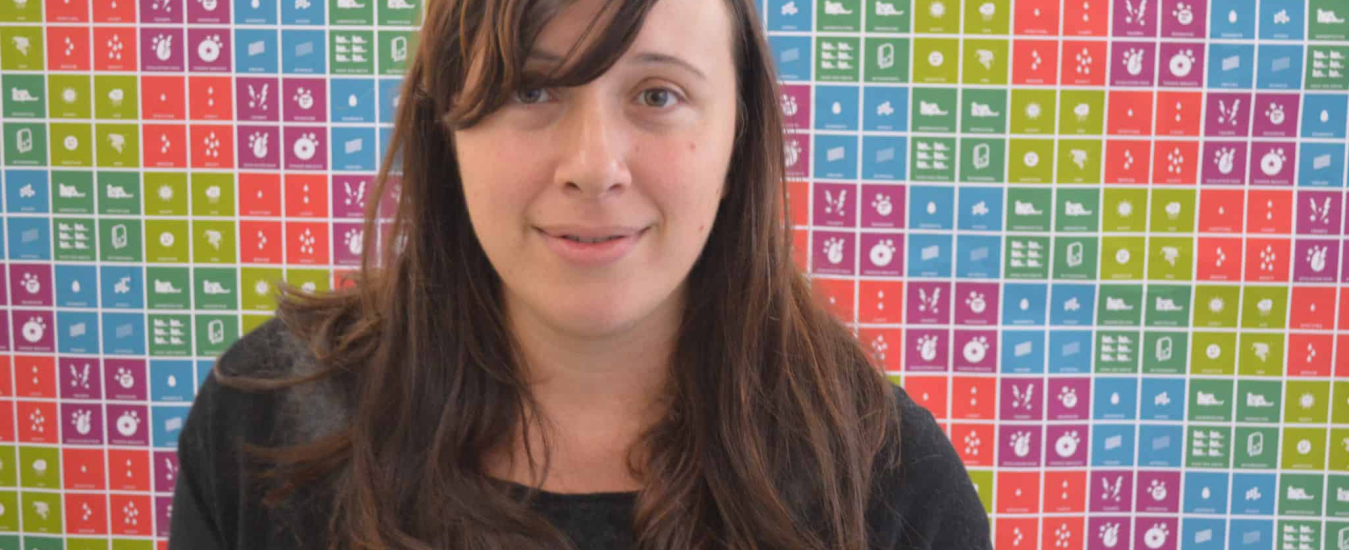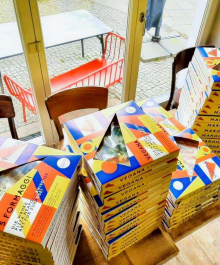

Berlin App Clue Makes Babies Happen, For Better Or Worse
By Philip Eggersgluess . January 6, 2016
For our series “How to make it in Berlin” we got the chance to speak to Vedra, Head of Scientific Research at Clue, one of the stars of the Berlin Startup scene.
Clue’s app is designed to make fertility tracking accurate, fast and friendly. It helps users to keep track of your monthly cycle by analysing data such as your period, pain and mood etc. to help deliver bouncing babies to young couples, and manage menstrual cycles. Cleverly, it’s also not only for women, as the male partner can also use the app.
So Vedra, what is your role in the Clue team?
I am heading scientific research, which serves multiple facets of Clue. Within the app, I participate in the research on new tracking categories, researching information that will later be displayed as informational text.
I further cover scientific collaborations with our external partners, and we currently have 10 collaborations at different stages and in different fields. Scientific collaborations will serve to create better and smarter algorithms for us, but also to discover the shifting trends in global reproductive health.
I am also in charge of building our medical board.
Lastly, I help with medical support, simplifying biological complexity for our users.
I also bake vegan muffins. I would not say that is my favorite role, but it is something that makes people at Clue smile when they see me coming in on Monday.
Why is the world a better place with Clue, and why should both women and men use it?
To start off with the social aspect: Clue shows people that there is nothing wrong with the period or talking about it. Periods are part of all of our lives, whether we ourselves have one, or are in a relationship with a menstruating partner. It is a big part of life to share and connect over. It’s not meant to hold against someone, or use in arguments or jokes… Perhaps with Clue, we will help people develop a new sense of humor.
Clue, in being very frank, allows people to get informed about average, medically normal cycles as well as irregular ones, without unsubstantiated and scientifically unchecked urban myths that put people’s health and well-being at risk.
People can track their well-being with Clue: they can enter many personalized symptoms, and understand them through a longer-term perspective. This will enable faster and more accurate detection and diagnosis of both simple and complex conditions involving fertility and beyond. It can help people stay healthy and react faster to the negative changes in their health and fitness.
Non-menstruating individuals can track their symptoms, without having to enter period data. The app uses many variables that are universal to all people: pain, skin, hair, stool, digestion and sex. There is cyclicity in those too.
Men should use it whether they want to learn about their partner’s cycle, well beyond the classic “send the flowers – it’s PMS time” crap. If men choose, they can learn to empathize about the different phases of the menstrual cycle.
Can you tell us some stats about Clue, like which country uses it most?
The app has over 2.5 million users in over 180 countries and is available in 11 languages.
One thing I wonder about is, how many men use Clue to track their partners’ cycles?
That is a very interesting and important question. I know of several examples of people doing so for various reasons. We hear anecdotally from many male users who say they use Clue either along with their partner or independently. It’s encouraging to hear that men are involved in period tracking, because it shouldn’t be something taboo or unacceptable to discuss between couples. Fertility and reproductive health are relevant to everyone.
Where will Clue be five years from now from a scientific point of view?
Clue has a chance to become a leader in the branch of scientific research dealing with reproductive health, and conditions connected to the reproductive system. We will be able to co-create better health and disease prediction charts.
We are currently working with our collaborators within research institutes on what I like to call Clue “Generation 1” research, and will be soon submitting our findings for scientific review. After that, our ambition is to connect with other large pools of static data, namely genetics, and expand into the field of passive sensors. It is all about creating the best predictions as possible for the health of our users.
As soon as we go into complex traits analyses, and when we can present the global data, our users can get more insight into how their reproductive health will look in the next years or decades. This is technology very near for us.
When do you think an app like Clue will reach the point of not being an app anymore, and potentially being connected via sensors directly to the body… and how would this feature look?
I am a big evangelist on quantified self, and can talk at length about the advantages it brings to everyday life.
Technology is moving in this direction, seeing that today’s wearables are increasingly used for patient monitoring, or as a tool to help clinical studies. I would say we are not far from there. It is becoming mainstream.
Sensors are smaller, cheaper and easier to get or build, enabling widespread use.
I personally am looking forward to use tattooed and/or implanted sensors, as I believe that the passive monitoring of vital signs is a way to go for all of us, whether we want to become a better sportsperson, challenge our body’s performance, or just keep ourselves healthy and in good shape.
We are very close, and data obtained from passive sensors would be a great addition to the things we are tracking so far.
The Medtech space is very new and, comparing it to E-Commerce in the late ’90s, how do you see the scientific world growing into this?
There is a very natural way for the scientific world to become more of a global partner in health tech. Science needs big and diverse pool of data. So far, in many instances, scientific research has been based on a more-or-less genetically or geographically uniform population. This is why many of the prediction charts coming out of very long term and laborious collections cannot be successfully applied worldwide. We as humans are very distinct. Extrapolating data and making global conclusions from any type of confined and uniform set can be quite misleading.
Things like that slow research. Science and medicine needs more personalization, and a larger pool of such personalized (but diverse) data.
Many of us see opportunities for the betterment of human lives through building good health companies, enabling people to make good, evidence- and science-based decisions about their health. We can finally have equality in healthcare, in which patients will start active participation and promote maintaining healthy body.
Anything else you would like to say?
We have an amazing opportunity to participate in changing our world for the better, enabling individuals to make educated decisions about their health, their present and their future. This will reflect on the larger world, building better experiences for all of us. Seizing this opportunity is a tremendous honor.
Thank you, Vedra for this great interview!
—
Ready? Here is your access to Clue!






